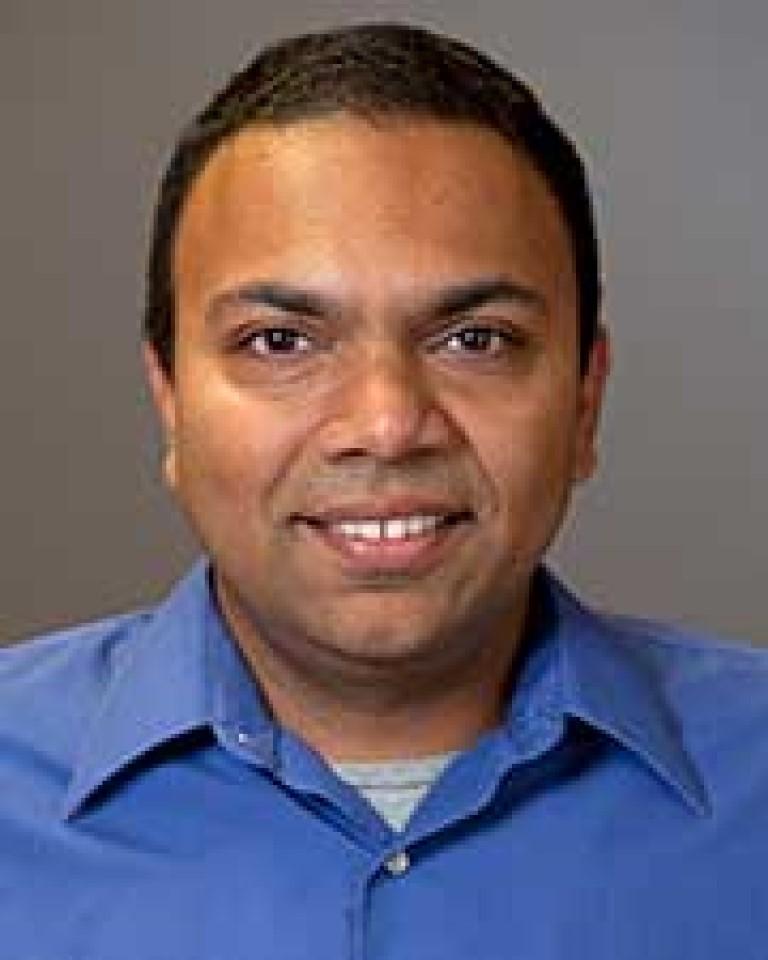Navin Viswanathan

MENTOR SPOTLIGHT | APRIL 2018
Department: Speech-Language-Hearing
Describe your work in a few sentences that we can all understand: I am interested in understanding how human speech listeners are able to understand speech effortlessly even though the speech signal is highly variable (e.g., how we can understand the same word “dog” produced by different people with such different voices/accents? or how it is that we can understand speech in a very noisy restaurant?)
Q: How did you first get interested in doing research?
A: I got interested in this line of research while I happened to sit in on an undergraduate class in Developmental Psychology. I was fascinated by language development and studying language use. During my PhD, I had the opportunity to work with two mentors (Drs. Carol Fowler and Jim Magnuson) who approached these issues with complementary perspectives. Furthermore, I got to work at Haskins Labs (New Haven, CT) – the mecca of early speech perception research– which made a huge impression on me and got me hooked.
Q: What do students in your discipline learn by doing research that they wouldn’t learn by just taking classes?
A: Plenty of tangible and intangible things. First, being involved in a research project and doing hands-on work is a unique opportunity for students to apply what they learn in class. However, more importantly, this permits students to participate in the process of navigating the unknown. For instance, my students and I often reach stages in a research project where we have to evaluate our next steps or interpret puzzling results together. I think this is one of more valuable aspects of this experience.
Q: What do you find to be the most exciting part of doing research or creative work? What makes this line of work meaningful and interesting to you?
A: The most exciting part of doing research is the opportunity to create new knowledge. Cliché as that may sound, as a student I often thought all the major discoveries have already been made. Of course, I now realize that I could not have been more wrong.
Q: What advice do you have for undergraduates interested in doing research in your field?
A: The thing that I always tell students contemplating research is that they can acquire many new skills participating in almost any research in their broad field of interest. In other words, instead of trying hard to find a project that is closely matched to their interests (which is great when it happens, of course), they should seize any opportunity they have. Many new careers are born this way.
Q: For many students, doing research or a larger creative project is the first time they have done work that routinely involves setbacks and the need to troubleshoot problems. Can you tell us about a time that your research didn’t go as expected? Or about any tricks or habits that you’ve developed to help you stay resilient in the face of obstacles?
A: This is a very good question and, indeed, this experience can be challenging or even demoralizing. Setbacks in research are so common that if a project appears to go too smoothly, I get a little suspicious! In general, I think the realization that setbacks are common and even integral to the research process helps me stay focused and keep plugging away.
Q: How do you spend your time outside of work?
A:I like exploring the surrounding areas, taking walks in the prairie, and watching the impressive flocks of birds migrating though our skies. I also like to travel and watch sports.